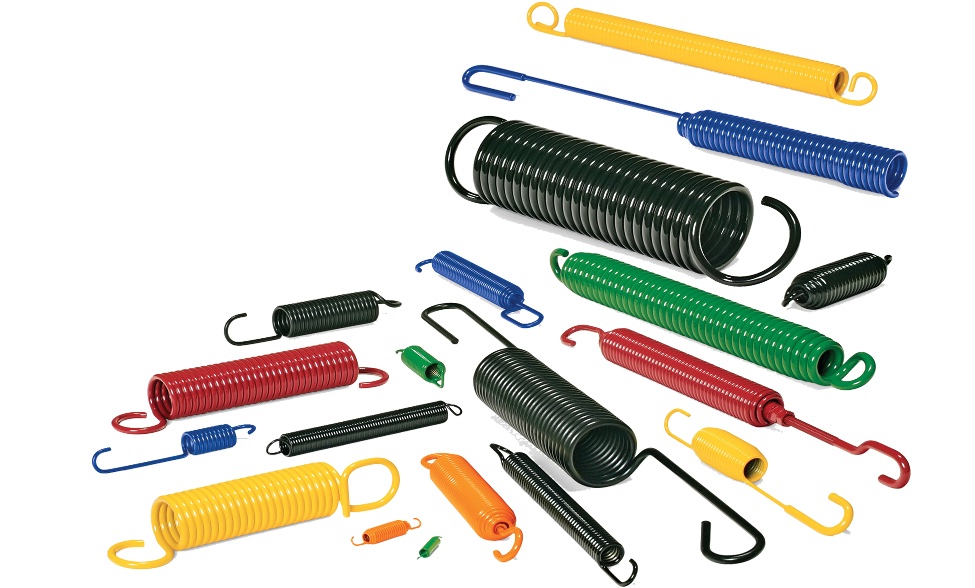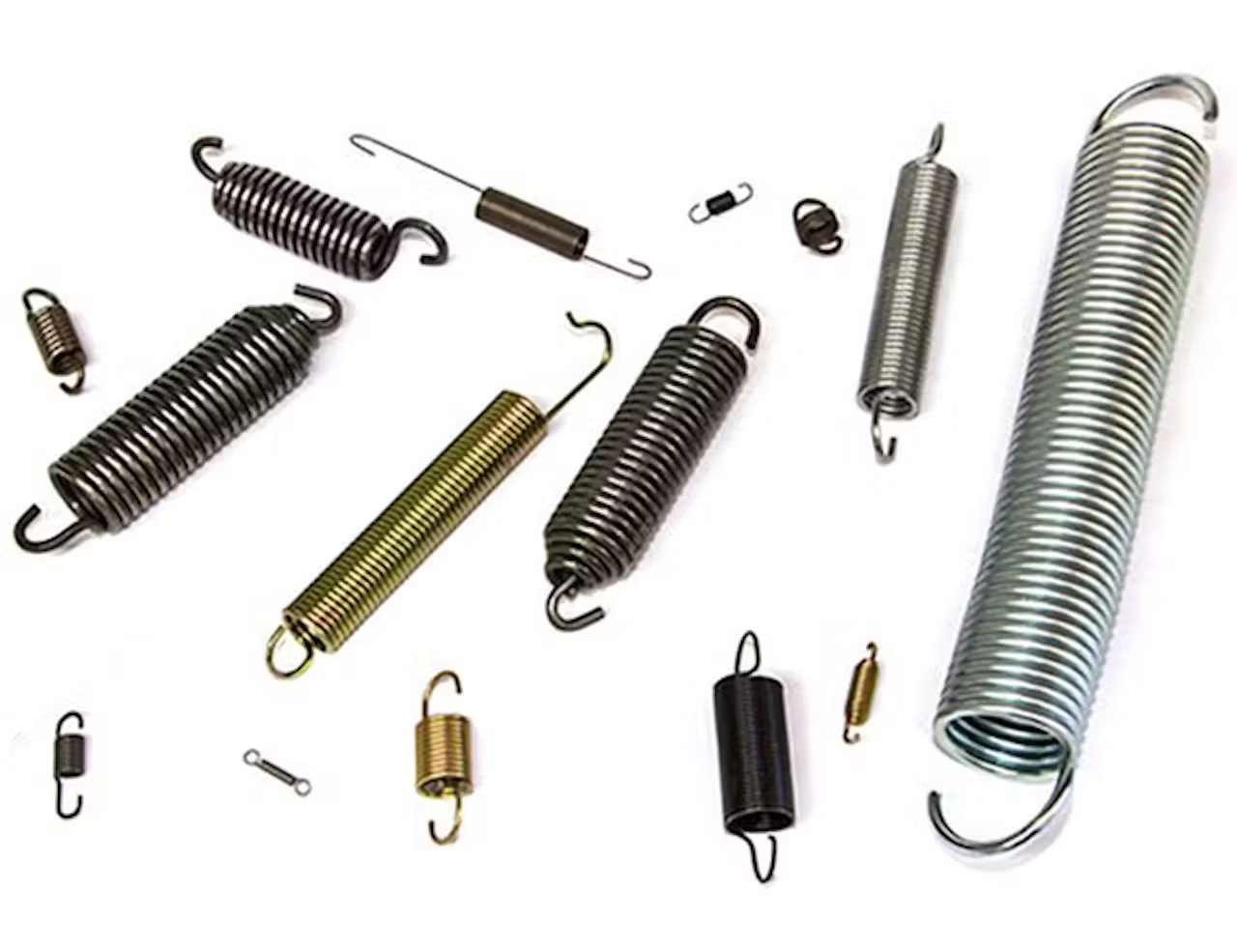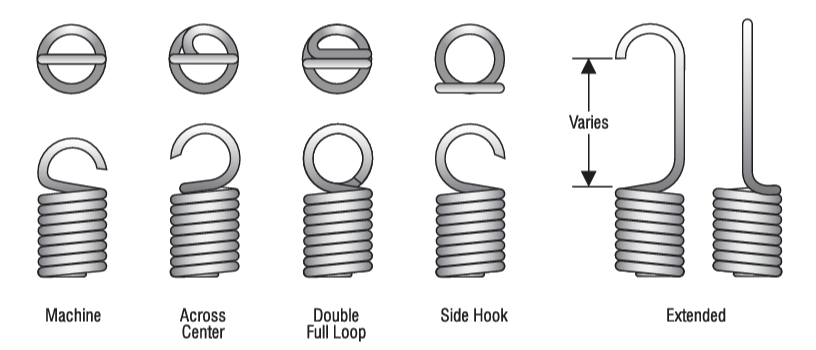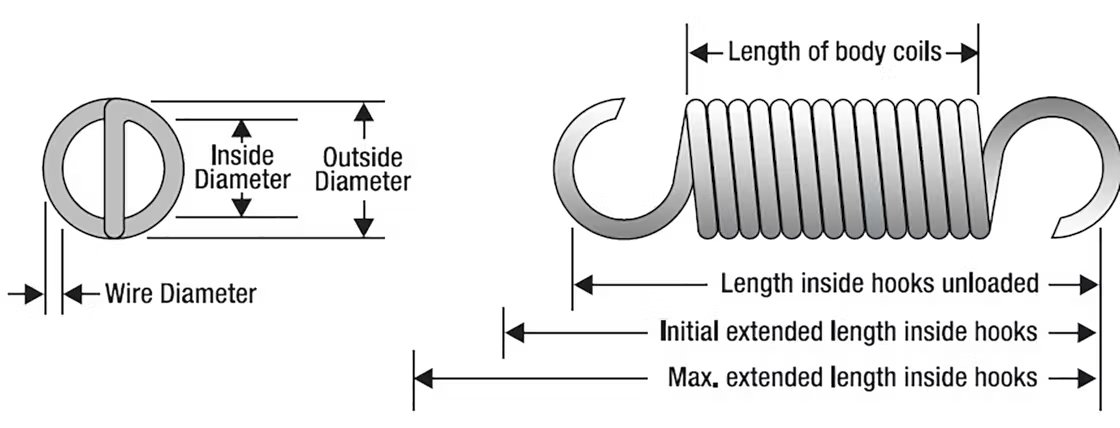Tension spring

Tension spring
- Wire thickness: 0.15mm – 4.00mm
- Wire cross sections: Round,Squre or Oval
- Materials: Carbon steel, Stainless wires, non-ferrous spring wires,special alloys
- Application examples: braking systems, pedals, cup holders, soft close drawer systems, Health Equipments
About Extension Springs
Extension springs resist pulling forces by stretching and returning to their original shape. They feature hooks or loops for attachment and are used in automotive,
industrial, and agricultural applications. Common in garage doors, trampolines, and machinery, they are made from materials like stainless and carbon steel for
durability.
How Extension Springs Work
Extension springs are designed to absorb and store energy as well as create a resistance to a pulling force. The “initial tension” is created during manufacturing
when the wire is rotated backwards during coiling. It is initial tension that determines how tightly together an extension spring is coiled. When you pull the spring
apart, you are undoing the rotation, which develops force or initial tension. Initial tension can be manipulated to achieve the load requirements of your particular
application.
Extension Spring Manufacturing
If you are looking for industry-leading expertise for extension springs, you’ve come to the right place. Our teams are comprised of experienced manufacturing
technicians and engineering experts who are committed to developing the right products to suit your needs. Our experts can produce extension springs of various
thicknesses and lengths to suite your requirements.
Industries
Wire forming is used in markets such as lawn and garden, power equipment, agriculture, industrial, health care, appliances and furniture, farm equipment and
consumer goods.
Material
We also offer a variety of treatment and finishing
options for custom springs made from standard
or specialty materials. Certifications of
conformance for geometric tolerances for stock
springs are available upon request. Material
certifications are available for custom springs.

Wire Sizes & End Types
Our extension springs can be manufactured with
a selection of commonly requested or specialty
finishes.
Wire Types
We produce extension springs from both bar and
wire stock in a variety of thicknesses through both
hot and cold coiling methods. More details are listed
below:


Ends Types
The ends on the extension springs offered in our
stock inventory are the common machine-made
hook and full-loop configurations and include many
varieties of extension springs with hook ends. The
hooks or loops may have an across center transition
of the last coil before forming the hook or loop. The
angle between hook/loop planes (end position) is
random. If you need a specific end
configuration, contact us for design support and
quoting.
Measurements
To accurately measure an extension spring, follow the steps below.
• Hold the spring in one hand, and the calipers in the other hand.
• Place the calipers across the outside coil, either at the end or the center of the spring. This is called the Outside Diameter (O.D.).
• Place the calipers on the wire at one end of the body coil of the spring. This is called the Wire or Material Size.
• Place the calipers (or tape measure) on the full length of the spring, inside the hooks. This is called the Length (L.I.H.). (see diagram for example)
• Hold the spring in one hand, and the calipers in the other hand.
• Place the calipers across the outside coil, either at the end or the center of the spring. This is called the Outside Diameter (O.D.).
• Place the calipers on the wire at one end of the body coil of the spring. This is called the Wire or Material Size.
• Place the calipers (or tape measure) on the full length of the spring, inside the hooks. This is called the Length (L.I.H.). (see diagram for example)



